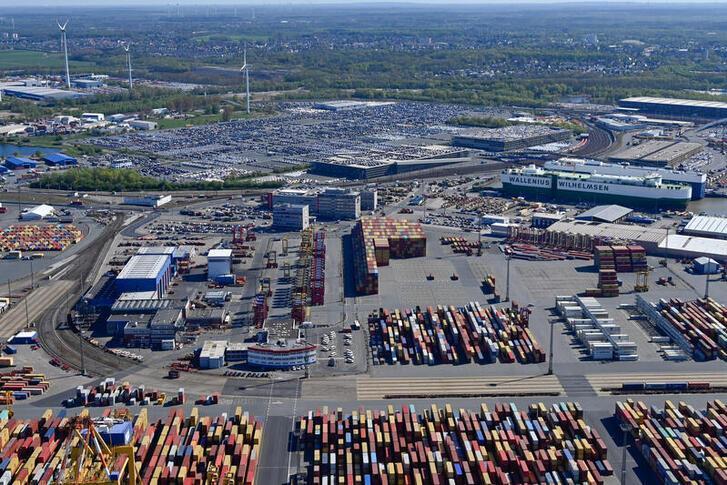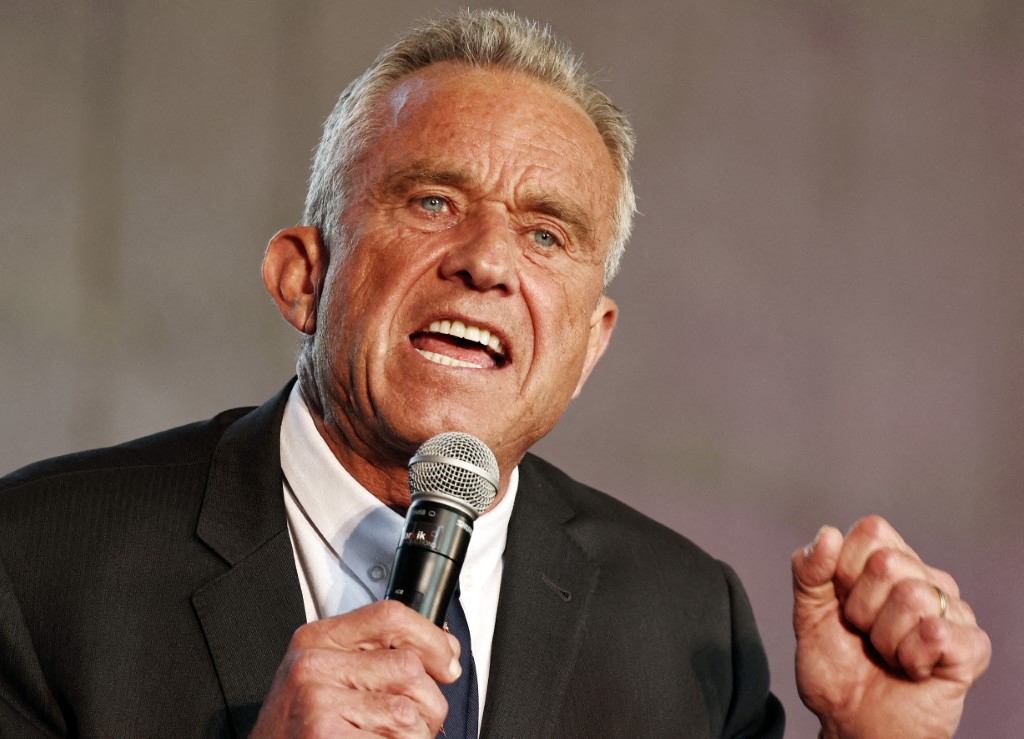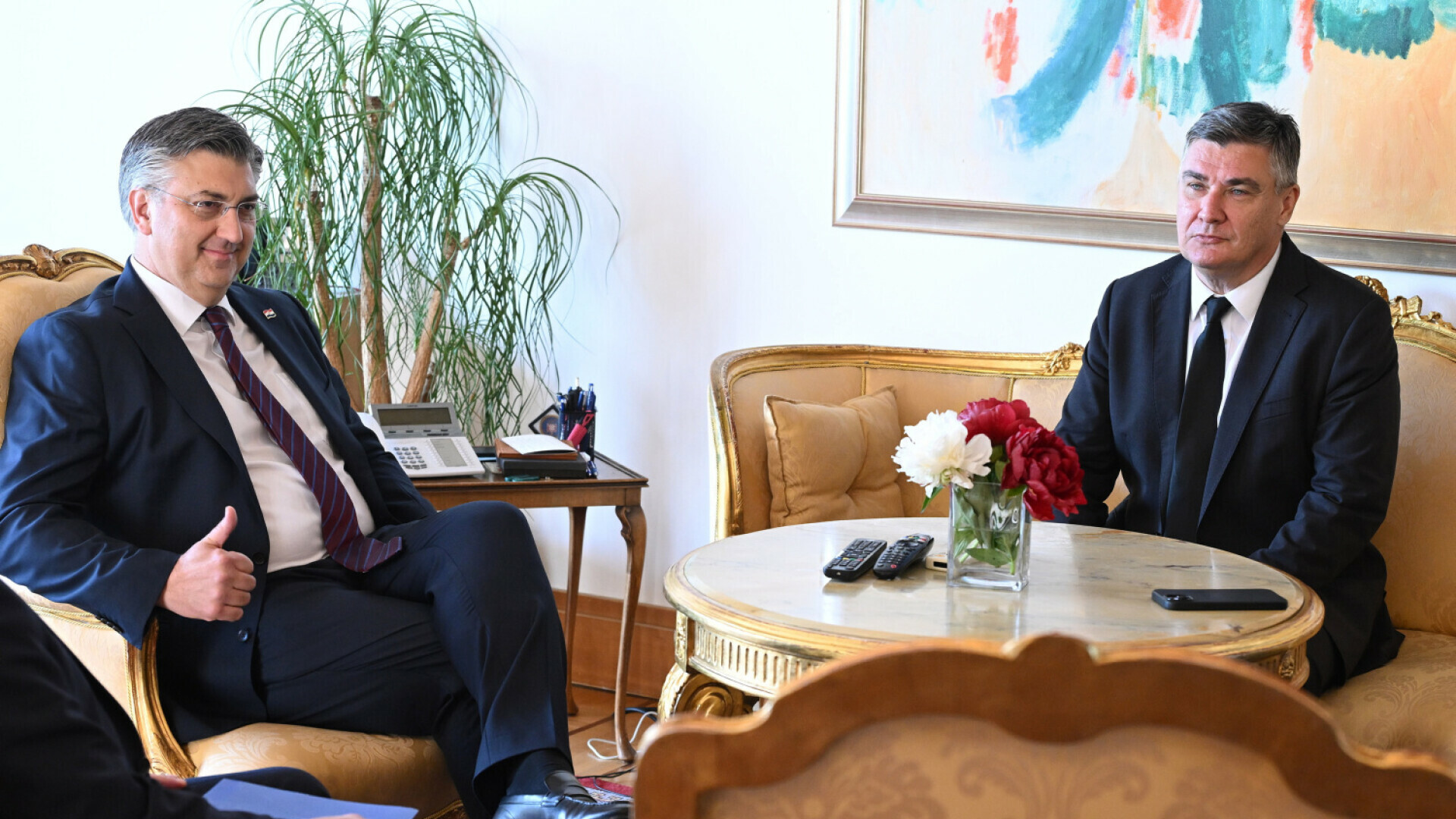North Macedonia Election: A Presidential Race with EU Ambitions and Regional Challenges
As North Macedonia gears up for critical presidential elections, candidates confront EU accession dreams and rule-of-law issues amid regional tensions.
Published April 24, 2024 - 21:04pm

Image recovered from washingtontimes.com
SKOPJE, North Macedonia -- As the presidential race heats up in North Macedonia, the Balkan nation finds itself at a crucial crossroads, with the outcome poised to influence the country's European Union (EU) membership ambitions and its commitment to the rule of law. With seven contenders vying for the largely ceremonial role, the spotlight hovers over the two major candidates: the incumbent President Stevo Pendarovski and the opposition-backed Gordana Siljanovska Davkova. Both are distinct in their approach to Bulgaria's demand for constitutional recognition of a Bulgarian ethnic minority—a crucial juncture in the nation's EU accession path.
President Pendarovski is seeking another term with the support of the country's governing social democrats and prioritizes immediate constitutional amendments to facilitate EU integration. Conversely, Siljanovska Davkova, supported by the center-right main opposition VMRO-DPMNE coalition, opts for a cautious route, preferring to wait until EU membership is secured before embarking on a constitutional overhaul. This divergence in strategies resonates deeply with the voters, who are keen for progress but wary of internal discord and external pressures.
The elections are set against a tapestry of international support and cautionary voices. German officials have expressed a strong desire to see North Macedonia in the EU, emphasizing that the nation would be a valuable addition to the union. However, analysts anticipate that the final stretch of the campaign may see sharpened rhetoric, with warnings against foreign interference, primarily from Russia, and efforts by neighbors to destabilize the country. A successful election would reaffirm North Macedonia's role as a factor of peace and stability in the region.
Among the electoral promises and political posturing, the voices of everyday citizens are clear—they expect the elections to chart a course towards EU membership, combat corruption, and foster an environment that reverses the brain drain affecting the nation.
The first round of elections has unfolded smoothly, with a second round likely on May 8, coinciding with parliamentary elections. Should no candidate achieve an outright majority, the contest will proceed to this pivotal run-off. With an 1.8 million-strong electorate waiting to cast their decisive ballots, the nation braces for a transformative period in its history.
Approximately 320 international observers oversaw the election process, underscoring its significance not only for North Macedonia but also for EU and NATO alliances. As initial results trickle in, all eyes are on North Macedonia, anticipating the outcome that could either cement its European trajectory or entangle it further in regional complexities.
The political landscape in North Macedonia is a microcosm of the wider regional dynamics at play in the Balkans, where historical grievances and geopolitical interests often intersect. The Presidential election in North Macedonia embodies these complex relationships, particularly with regard to its neighbor, Bulgaria, and its strategic moves towards the West, namely the EU and NATO. As North Macedonia teeters on the brink of a major political shift, the eyes of the world are trained on this relatively small yet symbolically significant country.
In the lead-up to the second round of elections, campaigns have intensified, with candidates reaching out to the diaspora and the youth, addressing their concerns and aspirations. The question of identity and language has also been a salient issue, with both frontrunners having to navigate the charged atmosphere. Pendarovski advocates for a resolution that appeases both EU requirements and national sentiments, while Siljanovska Davkova treads a delicate line, balancing nationalist undertones with the pragmatic need for international alliances.
Beyond the presidency, the electorate is also closely watching the parliamentary race. The political parties are locked in a fierce battle for dominance, and the composition of the next government could have a considerable impact on the country's strategic direction. The legislative branch's stance on judicial reforms, economic strategies, and foreign policy will be critical in determining how North Macedonia confronts the multifaceted challenges ahead.
Moreover, the economy looms large over the electoral landscape. With the COVID-19 pandemic severely impacting global markets, North Macedonia faces the urgent task of revitalizing its economy while ensuring equitable growth. Candidates have been scrutinizing each other's economic platforms, recognizing that successful EU accession negotiations are contingent not only on political and legal reforms but also on a robust economic framework capable of integrating into the single market.
As the campaigning heads towards a climax, civil society organizations have called for transparency and fairness in the electoral process. The role of social media has been noted for its power to both inform and misinform, leading to initiatives aimed at combating fake news and ensuring that information integrity is maintained. Transparency International has underlined the importance of these elections in strengthening democratic norms and fighting corruption, which remains a persistent obstacle in the nation's pursuit of EU accession.
Understanding that much is at stake, the candidates have pledged to uphold democratic principles and to foster unity. The ultimate hope is that regardless of the victor, North Macedonia will emerge from this electoral crucible with a reinforced commitment to democracy, resilience against corruption, and an unequivocal path towards European integration. As citizens prepare to vote in the imminent run-off, it is clear that their decision will echo beyond the borders of North Macedonia, influencing regional balance and the future discourse of EU enlargement.
With the second round of elections poised to unfold, the direction in which North Macedonia sails will soon be determined. Whether the sails are set for the steady currents of EU membership or adjusted to navigate the swirling eddies of domestic and regional turbulence, the journey ahead for this Balkan state promises to be both challenging and transformative.



:quality(70)/cloudfront-eu-central-1.images.arcpublishing.com/irishtimes/TKSMUIFON5E73CGUUHHXAF5JJM.jpg)



